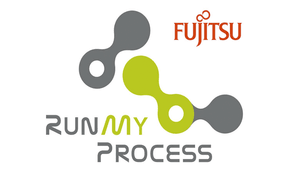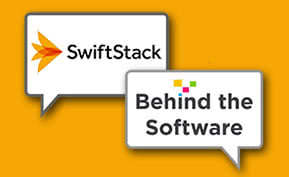PaaS
Top 5 Platform as a Service Providers

Platform-as-a-Service is a young market, undergoing vast changes. Many of its key players have only been active in the field for a couple of years, with giants like Oracle and HP just recently getting into the game. As a result, you have to either be an established company (Google, Microsoft), or do something unique (Engine Yard focuses solely on Ruby, for instance). We previously covered the basics of PaaS benefits and key software vendors. Today, we’re taking a closer look at the top 5 PaaS providers. This post is part of our editorial series on how the cloud is transforming the way we do business today.
Windows Azure
![]() Windows Azure has the benefit of being delivered by a company with a long track record and expansive customer base in the software industry. It’s no surprise, then, that it’s one of the leading Platform-as-a-Service solutions from a user count perspective. But it also exceeds in terms of what it offers. Since its original announcement in October 2008, Azure has morphed into a full-fledged cloud services operating system with service hosting and service management capabilities. The Azure platform consists of three core components: Compute, Storage, and Fabric (to connect nodes on different servers). It has been generally available since 2010. That following year, Windows Azure beat out all other major PaaS vendors in cloud speed, in a test performed by Compuware.
Windows Azure has the benefit of being delivered by a company with a long track record and expansive customer base in the software industry. It’s no surprise, then, that it’s one of the leading Platform-as-a-Service solutions from a user count perspective. But it also exceeds in terms of what it offers. Since its original announcement in October 2008, Azure has morphed into a full-fledged cloud services operating system with service hosting and service management capabilities. The Azure platform consists of three core components: Compute, Storage, and Fabric (to connect nodes on different servers). It has been generally available since 2010. That following year, Windows Azure beat out all other major PaaS vendors in cloud speed, in a test performed by Compuware.
Windows Azure pricing is based on usage or a subscription. Support is free.
Salesforce.com
 Salesforce.com is considered by many to offer the most mature PaaS in the market today. Their offering consists of four different components: Force.com, for building custom employee apps; Heroku, for building customer apps (purchased in 2011); Database.com, a cloud database storing, per Salesforce’s estimates, over 36 billion transactions and 13 billion custom objects per quarter; and Site.com, a cloud CMS that enables users to quickly and easily build attractive websites. The differences between these four components are subtle. Database.com, for instance, is used to develop apps for social, cloud, or mobile that can run on various platforms, including Amazon EC2 and Google App Engine. Force.com, on the other hand, features point-and-click app development and comes with a home page, Chatter UI, and various BI components.
Salesforce.com is considered by many to offer the most mature PaaS in the market today. Their offering consists of four different components: Force.com, for building custom employee apps; Heroku, for building customer apps (purchased in 2011); Database.com, a cloud database storing, per Salesforce’s estimates, over 36 billion transactions and 13 billion custom objects per quarter; and Site.com, a cloud CMS that enables users to quickly and easily build attractive websites. The differences between these four components are subtle. Database.com, for instance, is used to develop apps for social, cloud, or mobile that can run on various platforms, including Amazon EC2 and Google App Engine. Force.com, on the other hand, features point-and-click app development and comes with a home page, Chatter UI, and various BI components.
Salesforce.com’s platform is charged on a subscription basis. The company is particularly strong in the security and support areas.
Google App Engine
 Like Microsoft and Salesforce.com, Google offers more than just their flagship platform, Google App Engine. The company also provides Google Compute Engine, for running heavy computing workloads on Linux virtual machines; Google BigQuery, for cloud-based Big Data analysis; and Google Cloud Storage. And as if that weren’t enough, the computing giant just announced the Google Cloud Platform Partner Program, to extend its services and functionality across a wide ecosystem of partners and customers.
Like Microsoft and Salesforce.com, Google offers more than just their flagship platform, Google App Engine. The company also provides Google Compute Engine, for running heavy computing workloads on Linux virtual machines; Google BigQuery, for cloud-based Big Data analysis; and Google Cloud Storage. And as if that weren’t enough, the computing giant just announced the Google Cloud Platform Partner Program, to extend its services and functionality across a wide ecosystem of partners and customers.
Google App Engine pricing is based on usage. Like Windows Azure, it also offers hosting and storage functionality.
Engine Yard
![]() When Salesforce.com bought Heroku in 2010, many industry analysts raised their eyebrows. Heroku prides itself on hosting web-based apps written specifically in Ruby. But there was another company doing the same thing, only they had been doing it for longer, with more staff, and more backing from venture capitalists: Engine Yard. The company has gone through some rough patches: it laid off 15% of its staff in ’09, switched CEOs that same year, and then shut down its data centers and outsourced its infrastructure to Amazon and Terremark (with a resulting premium on top of Amazon’s or Terremark’s pay-as-you-go pricing). But none of this has stopped the company from gaining a user base of over 2,000 Ruby enthusiasts.
When Salesforce.com bought Heroku in 2010, many industry analysts raised their eyebrows. Heroku prides itself on hosting web-based apps written specifically in Ruby. But there was another company doing the same thing, only they had been doing it for longer, with more staff, and more backing from venture capitalists: Engine Yard. The company has gone through some rough patches: it laid off 15% of its staff in ’09, switched CEOs that same year, and then shut down its data centers and outsourced its infrastructure to Amazon and Terremark (with a resulting premium on top of Amazon’s or Terremark’s pay-as-you-go pricing). But none of this has stopped the company from gaining a user base of over 2,000 Ruby enthusiasts.
Engine Yard pricing is based on usage. The company excels in their support services.
Cordys
![]() Headquartered in The Netherlands, Cordys offers the Cordys Process Factory, a PaaS providing the tools and environment to create business apps for small and medium-sized businesses called MashApps. Additionally, Cordys offers a marketplace where users can download ready-made apps from the Cordys ecosystem. The company does not offer any hosting services. Process Factory is particularly popular among coders. Cordys Process Factory is priced based on usage or subscription.
Headquartered in The Netherlands, Cordys offers the Cordys Process Factory, a PaaS providing the tools and environment to create business apps for small and medium-sized businesses called MashApps. Additionally, Cordys offers a marketplace where users can download ready-made apps from the Cordys ecosystem. The company does not offer any hosting services. Process Factory is particularly popular among coders. Cordys Process Factory is priced based on usage or subscription.
Want more information on the top PaaS and cloud hosting solutions? We’ve compiled the top product reviews, blog posts and premium content on our cloud hosting research center page. Here, you’ll find all of the information you need to choose the right cloud solution for your business.






